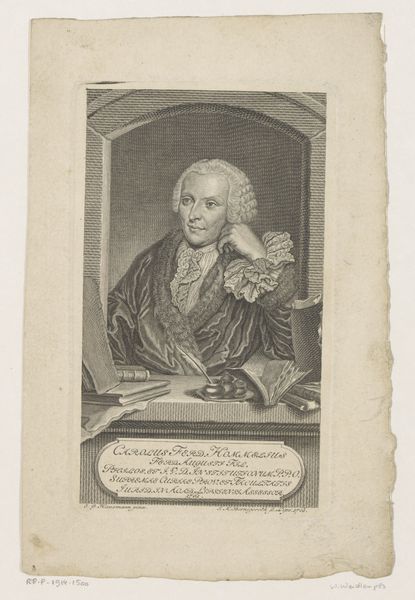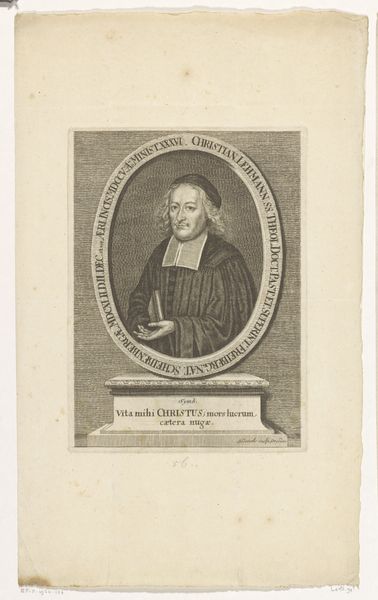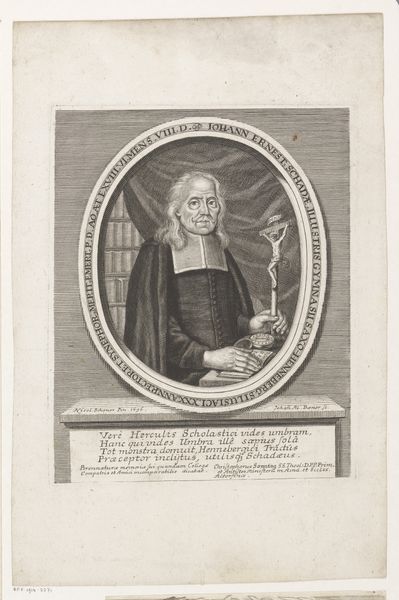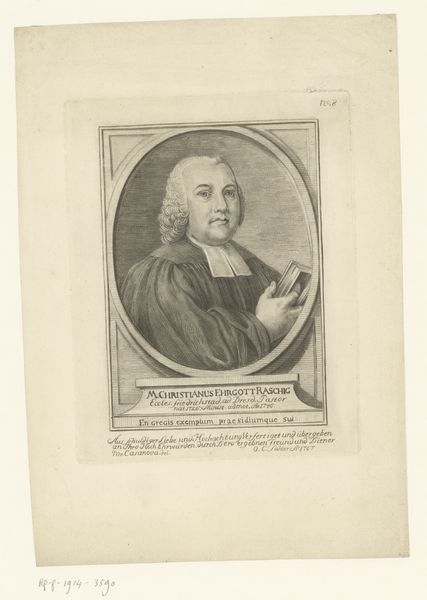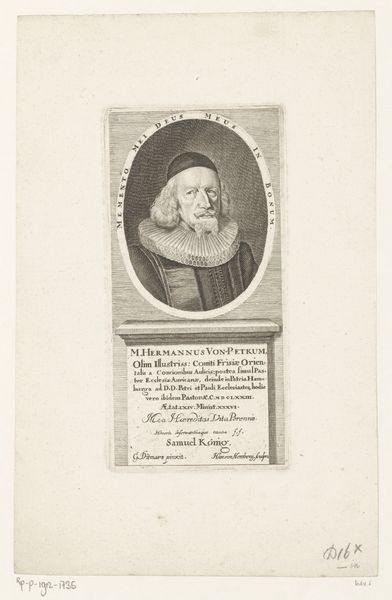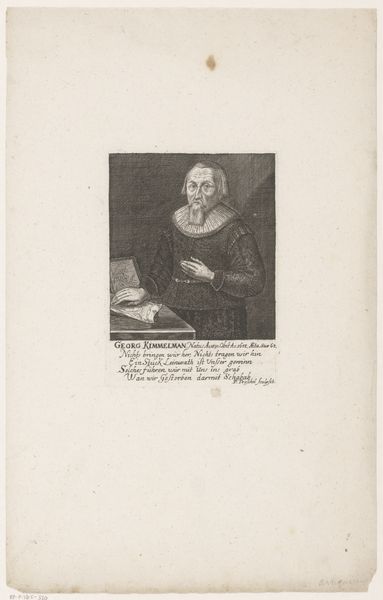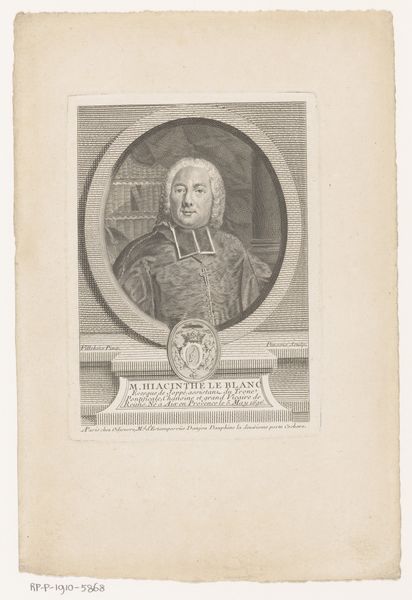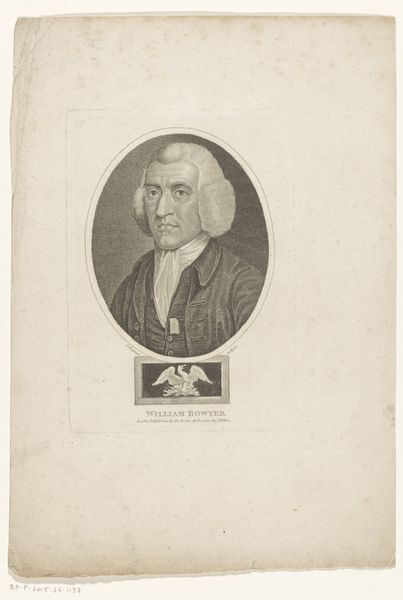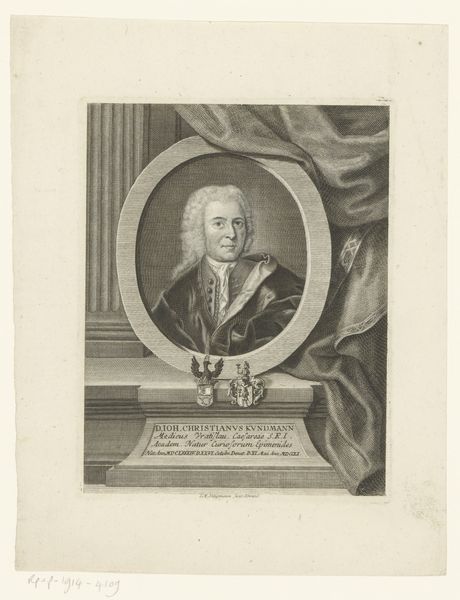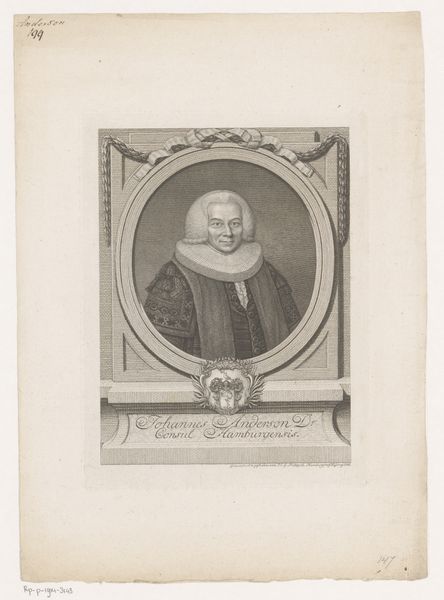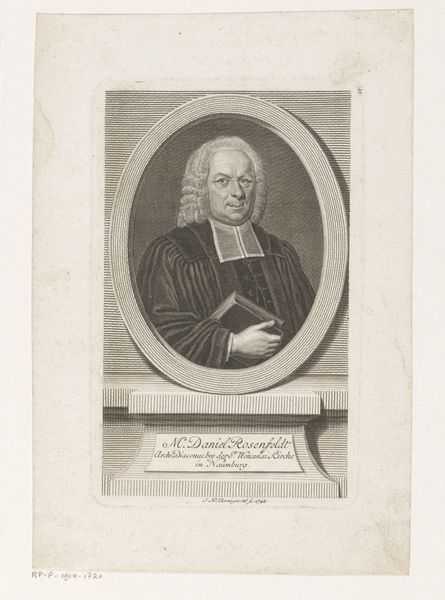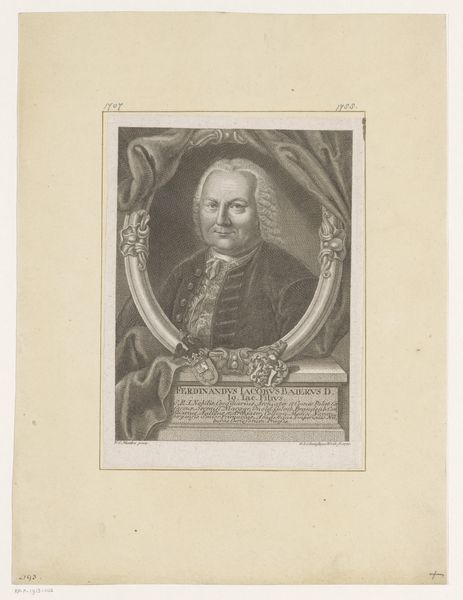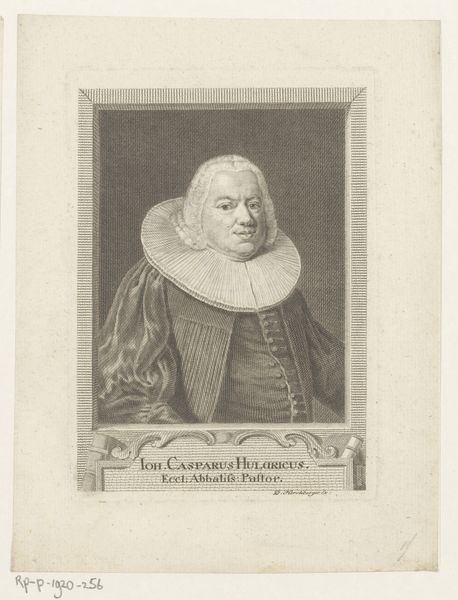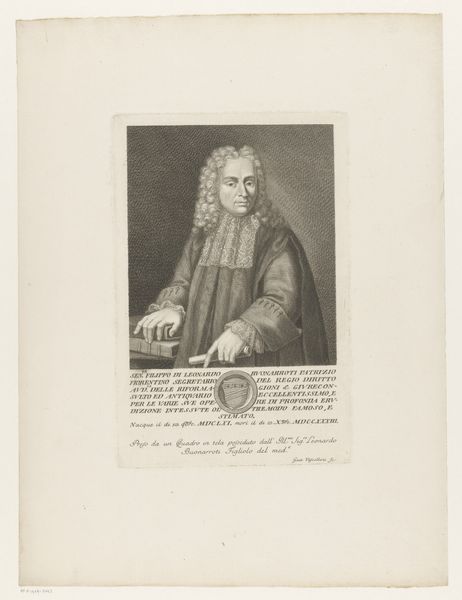
print, engraving
#
portrait
#
baroque
# print
#
old engraving style
#
engraving
#
realism
Dimensions: height 145 mm, width 103 mm
Copyright: Rijks Museum: Open Domain
Editor: Here we have a rather formal depiction of "Portret van Johann Kaspar Hagenbuch," an engraving dating back to 1750 by David Herrliberger, held in the Rijksmuseum collection. The intricate detail achieved through the engraving process is remarkable, almost photographic. How does your expert eye unpack the layers of meaning and making in this piece? Curator: This print, made through labor-intensive engraving, offers us insights into the material culture of the 18th century. Consider the means of its production: the engraver’s skill, the types of tools and materials used, the economics of printmaking and the access people had to printed imagery like this at the time. Where do you think this portrait would have circulated? Editor: Probably amongst the affluent, or maybe within academic circles given the book in the portrait... But what I wonder is about the engraver. What was Herrliberger's relationship to the subject and the society he operated in? Curator: Exactly! Herrliberger wasn’t merely recording an image; he was actively participating in the construction and dissemination of social status. Printmaking in this period was also vital to spreading scientific and philosophical ideas through visual representation, democratizing knowledge, yet it depended on exploitation of skilled craftspeople. The book the sitter presents directs the audience towards his scholarship. How might this be another form of capital? Editor: So, this seemingly straightforward portrait on closer look raises fascinating questions about class, production and distribution. I wouldn't have considered the engraving medium so central before, but you're right, it is integral to how meaning was shaped and accessed in its time! Curator: Indeed. It reminds us to look beyond the surface representation, exploring how the materials, process, and social context actively shaped its meaning and role in the world.
Comments
No comments
Be the first to comment and join the conversation on the ultimate creative platform.
